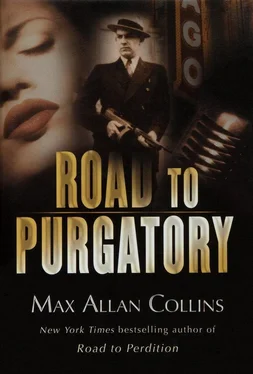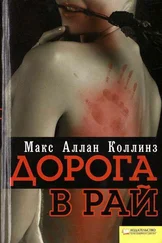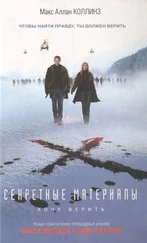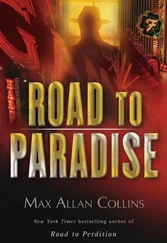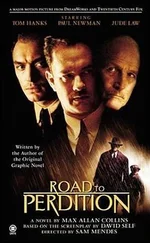“The beating I received at the hands of the mayor,” Looney was saying, “shows the disregard this evil mountebank has for freedom of speech, freedom of the press. The bedrock of our nation.”
“Three people died, Mr. Looney,” a young Democrat scribe said. “Including a police officer, killed by a stray bullet through a window. Surely you don’t condone the actions of these rioters.”
Looney shifted in the cranked-up bed. “Two citizens also died, when the police recklessly fired their guns into a crowd that had assembled because news had spread of my kidnapping and assault. These brave, foolhardy souls ran to my rescue, and I love them for it, even when their judgment failed them. Remember, some two dozen suffered gunshot wounds from police volleys, or so I am told.”
An Argus reporter asked, “Will you continue to lobby for the mayor’s recall? Do you still intend to run yourself?”
“My newspaper has been unlawfully shut down,” Looney said. “And until I have my constitutional freedom of speech restored, I can lobby for nothing. That said, I understand the sheriff’s office is opening an investigation into graft and corruption in the Schriver administration.”
A Davenport Daily Times man pressed, “Do you or don’t you intend to run for mayor?”
“No. And I never did. I appreciate the enthusiasm of my many friends and supporters in Rock Island... but I frankly don’t know how that rumor ever got started... In fact, I will be leaving Rock Island very soon, to recuperate from these injuries at my ranch in New Mexico.”
The Argus reporter dared to ask, “You don’t mean to say that the mayor is driving you out of town, Mr. Looney?”
Looney pointed a trembling finger. “Young man, he has threatened to kill me on sight. Ask him about that. And see if Harry Schriver dares deny that, while his men pinned back my arms, he brutally bestowed this beating upon me.”
A reporter from the Tri-Cities Worker asked, “Is the talk true that one of your associates, Michael O’Sullivan, rescued you from an almost certain death?”
Looney managed a smile. “If you remove the word ‘almost,’ my friend, your statement will be more accurate. And you all know that as publisher of the News I insist upon accuracy to the finest detail.”
Connor, watching smiles blossom across the little press conference, wasn’t sure whether his father was kidding.
“We’d like to talk to Mike O’Sullivan,” the reporter persisted.
Raising a hand like the pope passing a benediction, Looney said, “I’m sorry, no. Mr. O’Sullivan has other more important matters on his mind and hands, at the moment.”
The Dispatch reporter asked, “More important than the welfare of his employer?”
“Much more, gentlemen. While we have been having our little fun, over these long hours, Mrs. Michael O’Sullivan has been doing God’s work — delivering into this cruel city a sweet young citizen.”
Connor did his best not to betray the nausea he felt, when his father coughed up such sentimental phlegm. As if the world needed another Shanty Irish brat. As if the existence of another O’Sullivan mattered a whit, in the great scheme of things.
Getting to his feet, Connor said, “That’s all, gents — my father needs his rest. You have your story. We appreciate you stopping by.”
And Connor rounded them up and guided them out.
At his father’s bedside, Connor stood and said, “We need to get you out of here, toot sweet, Pop. Before Schriver has a warrant sworn out, on one trumped-up charge or another.”
Looney touched his son’s hand; the battered face beamed. “You do care about your old man, don’t you, my boy?”
“I do, Pop. You know I do.”
And as his father gazed up at him through loving if slitted, puffy eyes, Connor Looney felt a rush of emotion. He did love his father, and his father loved him. Neither one of them was perfect, Connor thought. But then neither was this fucking world.
Wards were the rule at St. Anthony’s, but exceptions were made for the family and inner circle of a hospital benefactor like John Looney.
So it was that in another private room at the modern facility, Annie O’Sullivan held her new son in her arms, the tiny thing slumbering peacefully.
Last night around eight, she’d known the time was nigh; following her husband’s instructions, she called the hospital and an ambulance came quickly around. Mary Jane stayed with Michael, Jr., and Annie went off to St. Anthony’s, into the loving hands of nuns in white who hovered like friendly ghosts, and where hours later, she was joined by a red wee squalling thing whose beautiful ugliness stunned her.
Now she could hardly believe that, barely fourteen hours later, she felt fine. Exhausted, but fine.
Sitting beside her, wearing a silly grin, was the baby’s father; dark circles under his eyes, skin a grayish pallor, tie loose around his collar, suitcoat rumpled, he looked like a corpse. But a happy one.
Whispering, not wanting to wake the child, she said, “We haven’t spoken of a name, yet.”
“Your father was Peter,” he said. “Mine David. I vote for Peter David O’Sullivan.”
“Lovely. How lovely. It’s unanimous, then.”
The baby woke and cried just a little — sort of a halfhearted wail, as if only doing what was expected of him.
Annie began to nurse the child, saying, “Welcome, Peter. Welcome to the family.”
And Mike sat watching, with the goofiest expression.
After a while one of the sisters came and took the child back to the nursery, so Annie could get her rest.
Mike sat on the edge of her bed and held her hand.
“I hear there was a terrible riot last night,” she said.
“There was.”
“Something to do with Mr. Looney, wasn’t it?”
“Don’t worry yourself about that.”
“So sad.”
“Sad?”
Annie sighed. Shook her head. “I overheard two of the sisters talking, this morning. Three died, they say.”
“Yes.”
“One a policeman.”
“So I understand. Annie—”
“One was just a boy of eighteen, running an errand for his mother, taken down by a bullet. In the back. Isn’t that terrible?”
How mournful Mike’s eyes seemed as he said, “Please don’t think of such things, dear.”
“Can you imagine? Sending your boy off for an errand, only to have him struck senselessly down like that?”
And then she began to weep.
He climbed up on the bed and slipped an arm around her and lay beside her, comforting her.
“I’m sorry... sorry,” she said, sniffling. He gave her his hand-kerchief, and she said, “It’s just... I’m so emotional right now. Please forgive me.”
“You should be happy.”
“Oh, I am! I am! But when I think of that poor mother... Never to see...”
And she began to cry again.
Arm still around her, Mike patted her gently, soothingly, as if she were a child herself.
Dabbing her eyes with her husband’s hanky, she said, “You have to promise me, Mike...”
“What?”
“I don’t want Peter, or Michael, involved in such things.”
“Such things?”
“The kind of work you do. You had no choice. I mean no disrespect, no lack of gratitude. But they must have... a better life. Promise me!”
“I promise, darling.”
And she could tell by the look in his eyes that he meant it. That he wanted nothing more in life than a different path for his boys.
She fell asleep in the crook of his arm, just as Peter had slept in hers; warmth flooded through her, happiness spreading its glow, with the promise of a shining future for her family, for her children, the likes of which only a great land like America could provide.
Читать дальше
